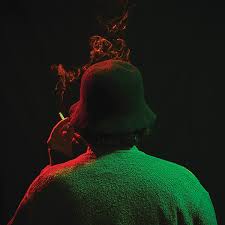"Nice to see you once again/been a long time my friends/since you crossed my mind at all." So begins the first Jim O’Rourke record of original songs with vocals since 2001’s Insignificance – the words both embracing his fans and keeping them at arm’s length. Such ambivalence is nothing new: O’Rourke is as famous for his sour moods as he is for his astounding musical range, jumping effortlessly between Bacharachian song craft, ambient drone, twitchy electronica and American primitive guitar forms (while also producing Grammy-winning albums for Wilco and playing guitar for Sonic Youth). But focus on that first line, the bit about it being nice to see you again. Simple Songs is the most emotionally direct of O’Rourke’s pop-oriented releases for Drag City, and the least likely to distance the listener with a cruel joke or winking musical allusion. Jim is still Jim, of course – the dark humour is there in spades – but as he ages (if Wikipedia is to be believed he turned 46 in January) O’Rourke seems increasingly willing to let his awe-inspiring musicianship, rather than his biting wit, do the talking.
If we’re being reductive (and when you’re talking about an artist as freakishly accomplished as O’Rourke you most certainly are), Simple Songs sounds like O’Rourke took his single-song instrumental masterpiece The Visitor – released on Drag City in 2009 – cut it up into eight pieces and wrote lyrics for each. The production is similar on both records – simultaneously pristine and cosy. As is the instrumentation: a grab bag of mid- to late-20th-century Americana dominated by jazzy percussion, brass, strings, piano, and electric, 12-string and pedal steel guitars. (Jim played most of the instruments himself.)
Needless to say, these are not simple songs. Nearly every one manages to compress a decade’s worth of rock and folk – from Harry Nilsson’s 1971 record Nilsson Schmilsson to Steely Dan’s Gaucho in 1980 – along with pre-rock composers like Copland and Gershwin into less than six minutes of music. The record is written to within an inch of its life, yet O’Rourke always knows when to focus his arrangements and let the songs breathe. There’s the way ‘Friends With Benefits’ comes to a full stop before setting off on a minute-plus coda that slowly builds the song’s 12-string guitar riff (ripped straight from Zeppelin’s Houses Of The Holy) into a towering climax. Or there’s the string quartet that takes over ‘Last Year’ for a split 20 seconds. Or the twinkling piano figure that brightens the corners of ‘That Weekend’. Simple Songs is a record of profoundly complex tunes built from profoundly simple pleasures.
Yet what truly sets the record apart from its Drag City predecessors is O’Rourke’s lyrical vulnerability. A fear of death, or at least of ageing, hangs over the entire album. "If you think your glass is half full/ might be best for you to take off now/ ’cause the half that remains/ is little more than a stain/ that sticks to you like a shroud," O’Rourke sings on ‘Half Life Crisis’. ‘These Hands’ is a breathtakingly sad little folk ballad about the loneliness and idiocies of middle age – and because it’s a Jim O’Rourke song, it’s also hilarious. And there are even oblique references to actual romantic relationships on ‘End of the Road’ and ‘All Your Love’.
On his earlier Drag City releases, O’Rourke seemed to be daring you to call his bluff with infamous lines like: "Looking at you reminds me of looking at the sun/ and how the blind are so damn lucky." Who could possibly be that much of an asshole, right? But with Simple Songs, O’Rourke is less interested in playing the incorrigible misanthrope. All jokes and witty one-liners aside (and there are plenty of those), Simple Songs places far fewer layers between Jim and the listener. O’Rourke doesn’t invite you inside his home, but he does unlock the door.
To be clear, this openheartedness isn’t necessarily an improvement on O’Rourke’s back catalogue – genius misanthropes can still be a lot of fun to hang out with, after all. But it is a breath of fresh air, and it certainly suggests that O’Rourke has much more to say with the traditional pop-song format. Which is plainly astonishing. How could someone be this gifted as both a pop and an avant-garde artist – as if Brian Wilson could make Merzbow records in his spare time? We could ask Jim, but somehow I doubt he’d be particularly forthcoming.
<div class="fb-comments" data-href="http://thequietus.com/articles/17843-jim-orourke-simple-songs-review” data-width="550">


